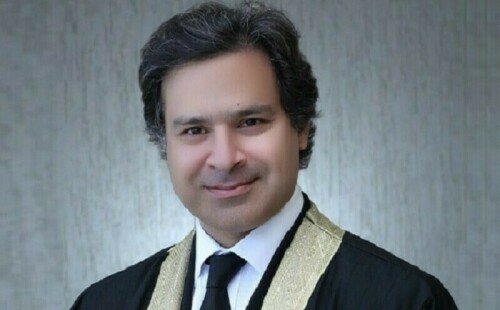ISLAMABAD: India said on Wednesday it was willing to talk to Pakistan on Kashmir, but only in the context of cross-border terrorism.
The message was delivered by Indian High Commissioner Gautam Bambawale to Foreign Secretary Aizaz Chaudhry in response to a Pakistani invitation for dialogue on the Kashmir dispute.
Pakistan had extended the invitation for the talks a few days ago in view of the latest uprising in India-held Kashmir.
The protests that erupted in the held Valley after the July 8 killing of Kashmiri militant commander Burhan Wani by Indian security forces spiked tensions between the two neighbours.
Indian authorities have tried to brutally put down the protests, killing about 70 people and injuring more than 6,000, some of whom have lost eyesight because of the use of pellet guns by the security forces. Constant curfew and complete media blackout of the Valley has been maintained for five weeks.
Mr Bambawale, in his meeting with Aizaz Chaudhry, conveyed Indian External Affairs Secretary S. Jaishankar’s willingness to visit Islamabad for the proposed meeting, but on Delhi’s own terms and agenda.
Bambawale meets Aizaz, conveys Foreign Secretary Jaishankar’s willingness to visit Islamabad
A Pakistani source aware of the contents of the Indian message said notwithstanding their readiness to talk, they were not willing to engage on the Kashmir dispute, which was the original intention behind the dialogue invitation.
“Since aspects related to cross-border terrorism are central to the current situation in Jammu and Kashmir, we have proposed that discussions between the foreign secretaries be focused on infiltration and terrorism,” an Indian official, meanwhile, said on the background.
The Pakistani position has been that the agitation in the Valley against Indian rule was fully indigenous and does not constitute terrorism.
“These events have nothing to do with terrorism. It is an indigenous movement for self-determination, a right promised to the Kashmiris by the UN Security Council,” Adviser on Foreign Affairs Sartaj Aziz had said on Monday in a rejoinder to Indian Prime Minister Narendra Modi’s statements accusing Pakistan of patronising terrorism and indulging in human rights violations in Balochistan, Gilgit-Baltistan and Azad Kashmir.
As part of its commitment to extend political, diplomatic and moral support to the Kashmiri struggle for freedom, Pakistan had launched an extensive diplomatic outreach highlighting the human rights abuses by the Indian authorities for suppressing the movement.
Prime Minister Nawaz Sharif had himself written to UN Secretary General Ban Ki-moon and UN High Commissioner for Human Rights Zeid Ra’ad Al Hussein, urging them to work for ending human rights violations in Kashmir and pushing India to honour the UN Security Council resolutions which provide for self-determination of the Kashmiri people.
“The situation is a clear manifestation of Indian state terrorism to suppress the Kashmiris’ struggle for their inalienable right to self-determination,” Mr Sharif had noted in his letters.
The Indian government, in the letter delivered to the foreign secretary, rejected the Pakistani allegations of abuses.
“We have also conveyed that the government of India rejects in their entirety the self-serving allegations regarding the situation in Jammu and Kashmir, which is an integral part of India where Pakistan has no locus standi,” the Indian official said.
The Indian response to Pakistani talks offer shows how firmly both countries are sticking to their stated positions.
Pakistan, analysts believe, made the offer anticipating India would reject it. Delhi, however, acted smartly and accepted the invitation, but stressed on talking on its own terms. The Indian response was seemingly designed to tell Western powers that it was not opposed to dialogue with Pakistan.
Published in Dawn, August 18th, 2016













































